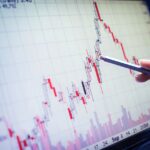The commodity market is a fundamental component of the global trade ecosystem, serving as a crucial platform for the exchange of essential goods and raw materials. Commodities, ranging from precious metals to agricultural products, play a vital role in our daily lives and the broader economy. Understanding the dynamics of the commodity market is key for investors, traders, and policymakers alike.
What is the Commodity Market?
The commodity market is where raw or primary products are exchanged. These commodities are typically divided into two main categories: hard commodities, which include natural resources like oil and minerals, and soft commodities, which encompass agricultural products such as grains and livestock. This market is characterized by its volatility, with prices influenced by a myriad of factors including supply and demand dynamics, geopolitical events, and macroeconomic trends.
Types of Commodities Traded
Commodities traded in the market fall into several categories:
- Energy: This includes crude oil, natural gas, and coal, which are essential for powering industries and transportation.
- Metals: Precious metals like gold and silver are traded for investment and industrial use, while base metals such as copper and aluminum are vital for construction and manufacturing.
- Agricultural: Food commodities like wheat, corn, soybeans, and coffee are traded globally, with prices affected by weather conditions, crop yields, and changing dietary trends.
The prices of these commodities are subject to fluctuations due to factors such as geopolitical tensions, supply chain disruptions, and technological advancements.
Commodity Exchanges and Trading
Commodities are traded on various exchanges around the world, including the New York Mercantile Exchange (NYMEX), London Metal Exchange (LME), and Chicago Board of Trade (CBOT). Trading can occur through spot markets, where commodities are bought and sold for immediate delivery, or through derivatives such as futures contracts and options, which allow traders to speculate on future price movements or hedge against risk.
Role of Commodities in Investment Portfolios
Incorporating commodities into investment portfolios can offer diversification benefits, as their performance is often uncorrelated with traditional assets like stocks and bonds. Additionally, commodities can serve as a hedge against inflation, as their prices typically rise when the purchasing power of currency declines. However, investing in commodities also carries risks, including price volatility and market uncertainties.
Impact of Commodities on the Economy
Commodity prices have a significant impact on the global economy. Rising commodity prices can lead to inflationary pressures, affecting consumer spending and central bank monetary policies. Conversely, falling prices can signal weak demand and economic slowdowns. Countries heavily reliant on exporting commodities can experience fluctuations in their trade balances and currency values based on global commodity prices.
Recent Trends in the Commodity Market
The commodity market has witnessed several trends in recent years, including the increasing influence of technology on trading and supply chain management. Environmental concerns and the transition to renewable energy sources are also shaping the demand for commodities, with a growing focus on sustainable and ethical sourcing.
The commodity market is a crucial pillar of the global economy, facilitating the trade of essential goods and influencing economic policies and investment strategies. Understanding the nuances of this market is essential for anyone looking to navigate the complexities of global trade and finance. As the world continues to evolve, the commodity market will remain at the forefront of economic discussions and investment considerations.














